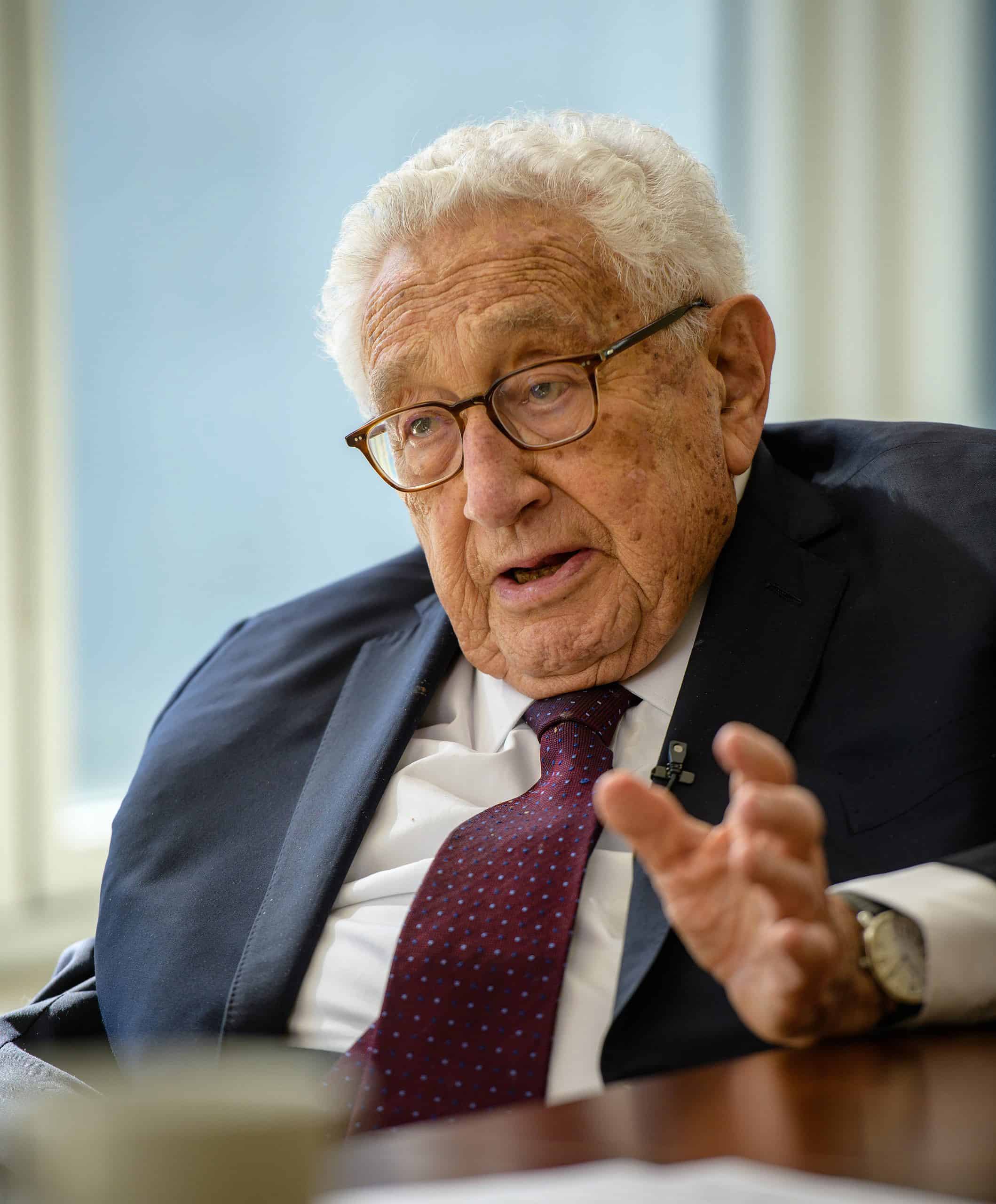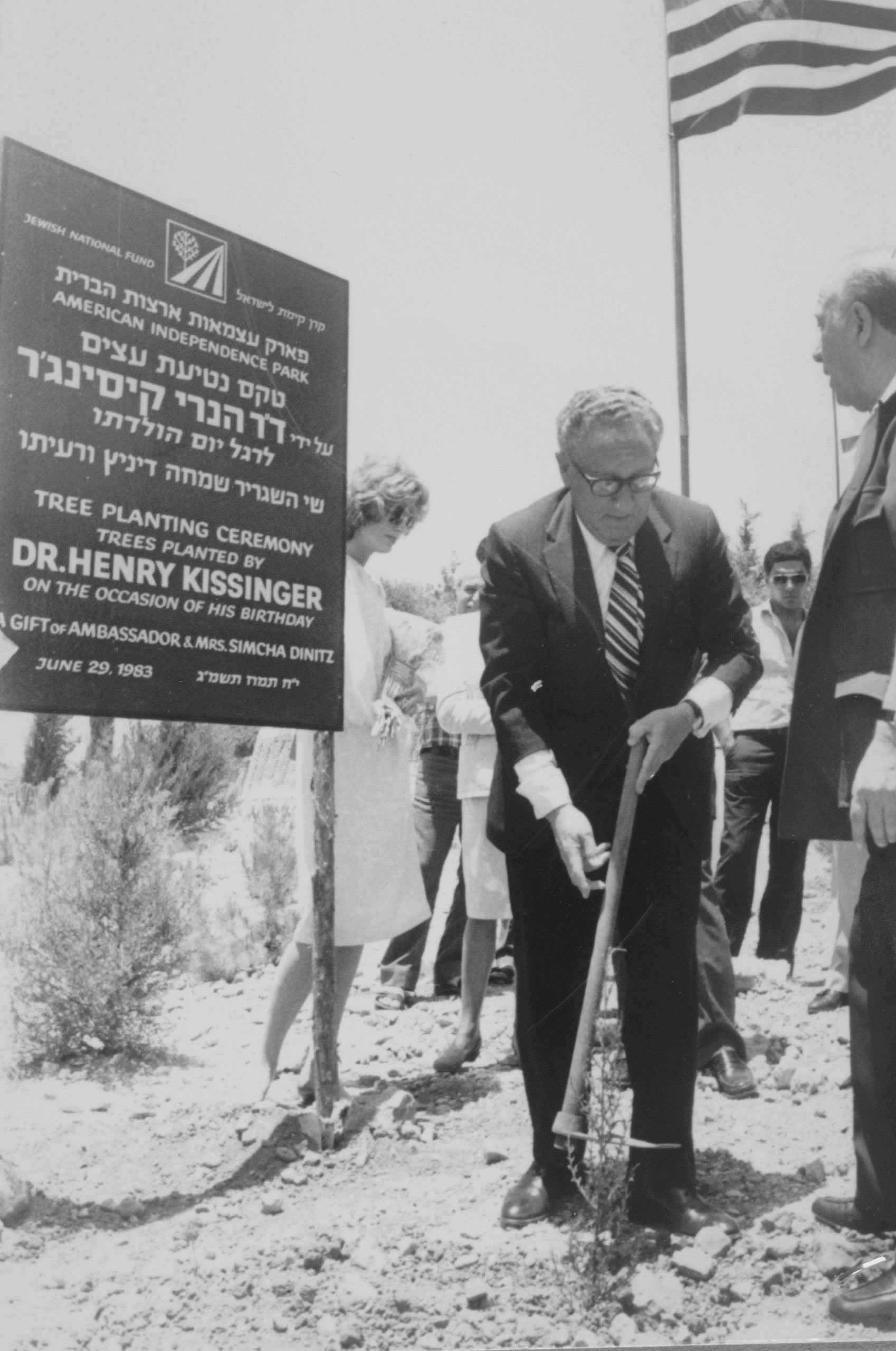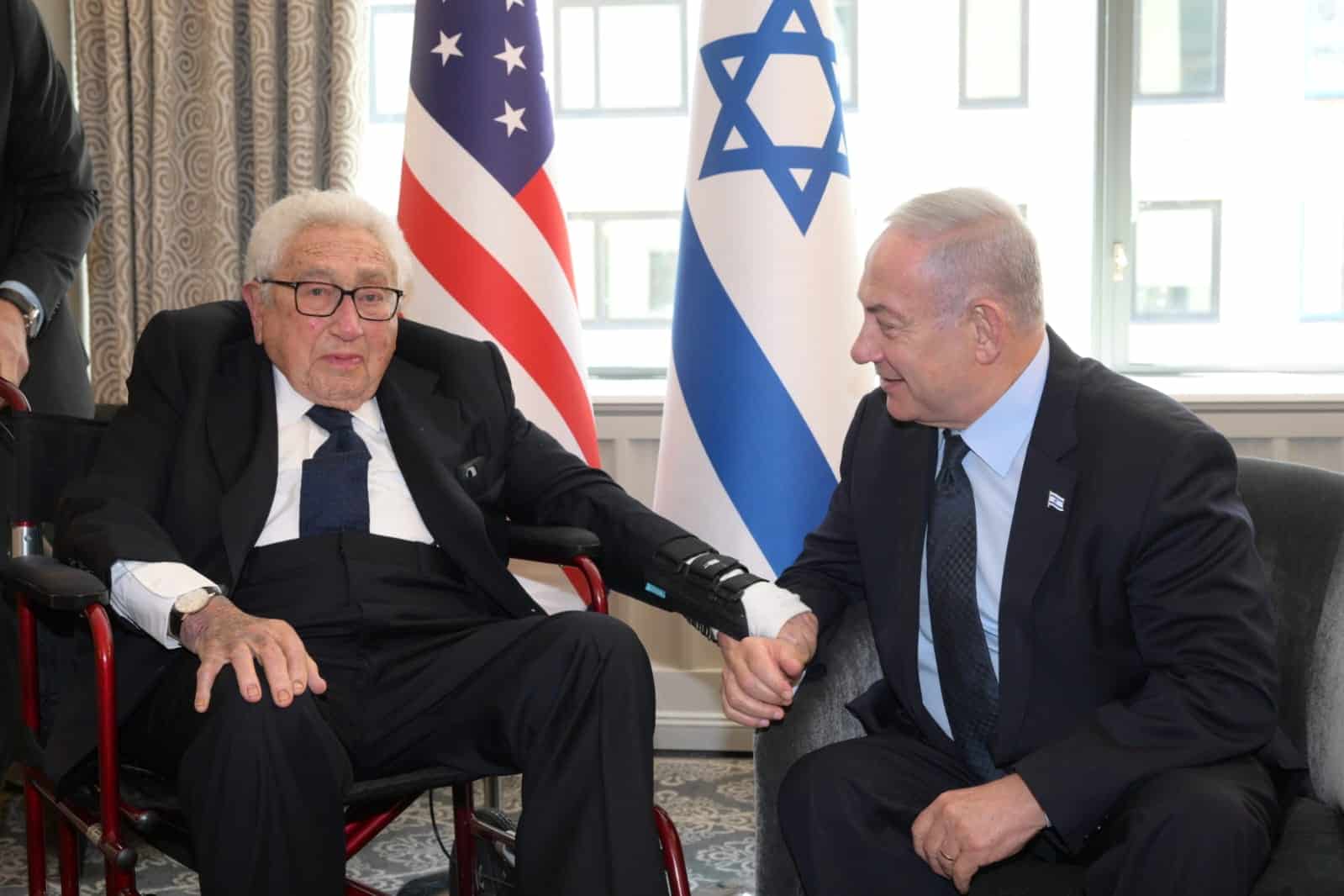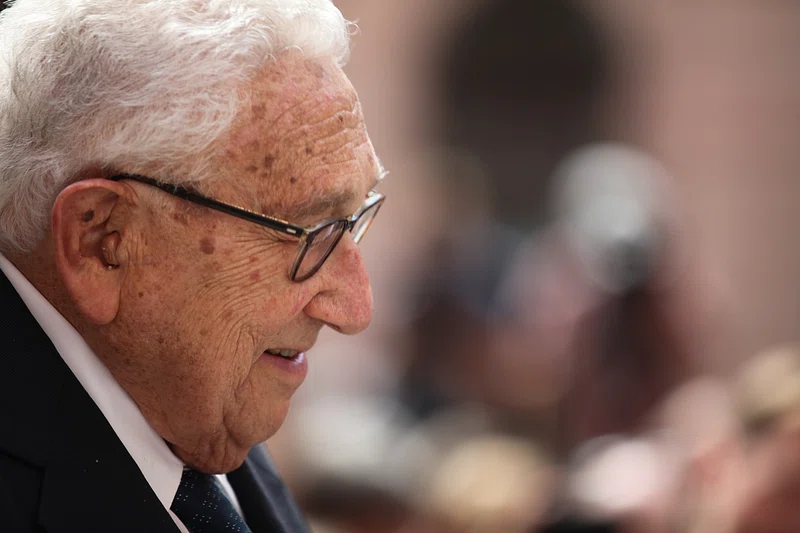
Alan Dershowitz first met Henry Kissinger in the mid-1960s. “We were both professors at Harvard, and his son and my son were elementary school classmates,” Dershowitz, an attorney, commentator and Harvard Law School professor emeritus, told JNS.
The two remained friends until Kissinger’s death, at 100, on Nov. 29.
Dershowitz told JNS that he and Kissinger sat next to each other in synagogue last year on Yom Kippur. “He said yizkor for his parents,” Dershowitz said, referring to the Jewish memorial service. “This year, he was too frail to come.”
Kissinger’s “pragmatism” and “sense of incremental benefits” influenced Dershowitz’s worldview, the attorney said.
“He was one of my strongest supporters. When I defended President [Donald] Trump in the Senate and a lot of people, particularly the Jewish community, attacked me, he supported me, defended me and called me and told me I had done the right thing,” Dershowitz said.
The two had long talks about Israel “about 1973 and whether he did the right thing or the wrong thing,” Dershowitz said.
“We’ve agreed and disagreed over the course of my lifetime—mostly agreed,” Dershowitz added. “He always had an image for the future. He was never thinking about today or even tomorrow. He was always thinking about the day after tomorrow. He was a visionary and a brilliant man.”
Realpolitik
Heinz Alfred Kissinger was born on May 27, 1923 in Fürth, Germany to a Jewish family. His father, Louis Kissinger, “was a teacher of geography and history in Fürth, Germany, before fleeing with his family to the United States in 1938 as antisemitism increased under Hitler,” per a death notice for Louis in the New York Times on March 21, 1982 (“Father of Kissinger is dead.”) His mother Paula was a homemaker.
Kissinger fought in World War II, working as an interpreter, arresting Gestapo agents, helping in the liberation of the Ahlem concentration camp in Germany and earning a Bronze Star.
After the war, he made his mark at Harvard, writing the longest-ever undergraduate thesis—400 pages—provoking a new rule limiting paper lengths. He became a professor at the university, and ultimately associate director of the schools’ government department and international affairs center.
He served simultaneously as U.S. secretary of state and national security advisor under U.S. Presidents Richard Nixon and Gerald Ford—the first and only time someone has held both roles at once, let alone doing it twice.
Kissinger is widely credited with crucially influencing Cold War affairs during this period, playing a key role in opening relations with China and numerous decisions in Vietnam and third-world conflicts. These have generated considerable acclaim and controversy.
He received the Nobel Peace Prize in 1973 for helping end the Vietnam War.
Elder statesman
 Following his retirement from government in 1977, Kissinger regularly wrote books on foreign policy and consulted widely with political leaders and diplomats.
Following his retirement from government in 1977, Kissinger regularly wrote books on foreign policy and consulted widely with political leaders and diplomats.
His foreign policy approach of “realpolitik”—which views international relations on the basis of self-interest rather than moral principles—continues to impact world affairs today.
Despite having lost family in the Holocaust, Kissinger was so committed to that pragmatic approach, that he once said, “If they put Jews into gas chambers in the Soviet Union, it is not an American concern. Maybe a humanitarian concern.”
Known for his wit, Kissinger also once said, “If it were not for the accident of my birth, I would be antisemitic. … Any people who has been persecuted for 2,000 years must be doing something wrong.”
Shortly before his death, Kissinger began writing about the potential threat of artificial intelligence.
“He was intrigued by artificial intelligence, and he actually understood it, which not too many people do,” Dershowitz told JNS. “He understood both the benefits and the risks. As he always said, every step forward has the potential for a half a step backwards, so he was always doing on the one hand, on the other hand evaluation.”
‘A giant, a titan’
During a meeting with Israeli President Isaac Herzog in Tel Aviv on Thursday, U.S. Secretary of State Antony Blinken said that Kissinger “really set the standard for everyone who followed in this job.”
“I was very privileged to get his counsel many times, including as recently as about a month ago,” Blinken added. “He was extraordinarily generous with his wisdom and his advice. Few people were better students of history. Even fewer people did more to shape history than Henry Kissinger.”
Herzog told Blinken, “You are following in the footsteps of a giant, a titan—Dr. Henry Kissinger—who has left us peacefully tonight.”
“We are big admirers of Henry Kissinger, who laid down the foundations of so many great decisions of his and processes which he has led, which has brought results that we feel until today, peaceful results,” Herzog added. “He laid the cornerstone of the peace agreement, which were later signed with Egypt, and so many other processes around the world. I admired Henry Kissinger.”
Kissinger ended his last conversation with Herzog saying, “Mr. President, please know I’ve always loved and admired and supported the State of Israel,” and “so I always felt his love and compassion for Israel and his belief in the Jewish state,” Herzog said.

Ronald S. Lauder, president of the World Jewish Congress, said that as a Jewish refugee from Nazi Germany, Kissinger “intimately understood the freedoms that the United States symbolized during a pivotal era.”
Kissinger appeared at some of the WJC’s events, and the congress awarded him in 2014 with its Theodor Herzl Award. “We mourn the loss of a statesman, whose wisdom and friendship were a beacon of light,” Lauder added, noting that Kissinger’s “passing leaves a void in our world that will be profoundly felt.”
Michael Herzog, Israel’s ambassador to the United States, wrote that Kissinger’s “life and career were the embodiment of the American dream, as he rose from being a Jewish refugee from Nazi Germany to a giant, who shaped global and Middle Eastern geopolitics and left a lasting legacy.”
Herzog cited a letter Kissinger wrote to his younger brother, the Israeli president, that “to celebrate Israel’s 75th anniversary alongside my 100th is a particular gift.”
Today we bid farewell to Henry Kissinger, the legendary American secretary of state, a Jew and a mench. I had the privilege of sitting down with him for many fascinating conversations about the future of the State of Israel and the Jewish people and I always came away with new… pic.twitter.com/wsBZXmaijy
— Danny Danon 🇮🇱 דני דנון (@dannydanon) November 30, 2023
Danny Danon, a Knesset member and former Israeli ambassador to the United Nations, referred to Kissinger as “the legendary American secretary of state, a Jew and a mench.”
Dershowitz told JNS that he fondly recalls his lunches with Kissinger, whose favorite cuisine was French. “He loved good food. I know. I shared some,” Dershowitz said.
“He was not a religious Jew, and was not really a traditional Jew, but the Judaism was in his heart,” he said.


























